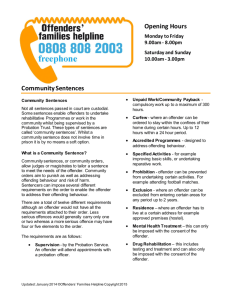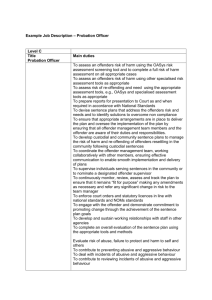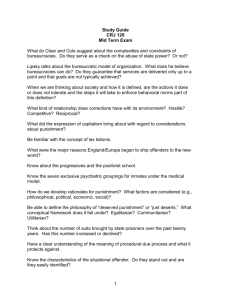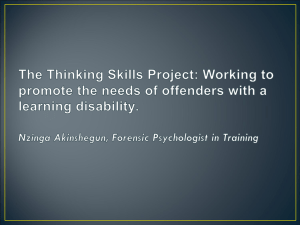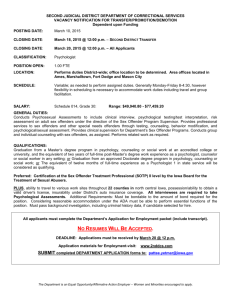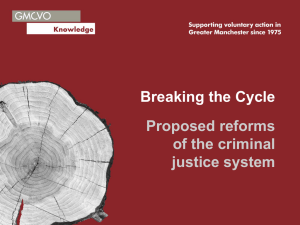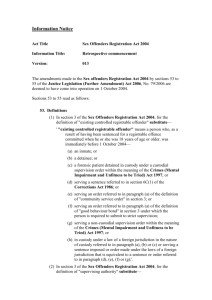Community Sentences - Offenders families helpline
advertisement
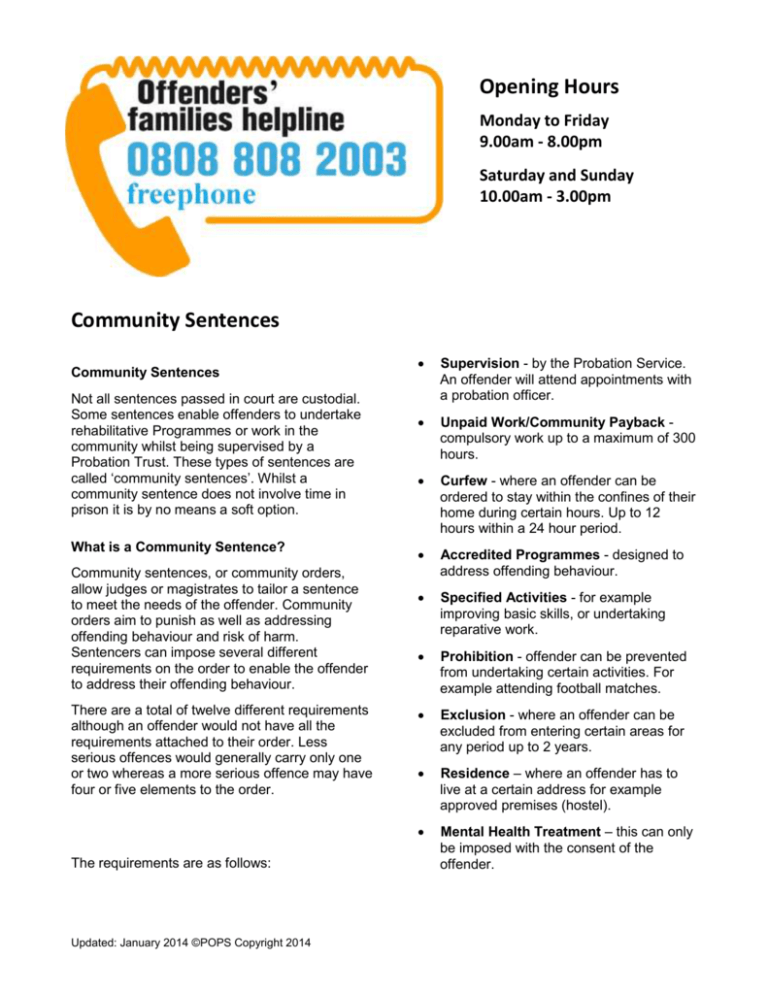
Opening Hours Monday to Friday 9.00am - 8.00pm Saturday and Sunday 10.00am - 3.00pm Community Sentences Community Sentences Not all sentences passed in court are custodial. Some sentences enable offenders to undertake rehabilitative Programmes or work in the community whilst being supervised by a Probation Trust. These types of sentences are called ‘community sentences’. Whilst a community sentence does not involve time in prison it is by no means a soft option. What is a Community Sentence? Community sentences, or community orders, allow judges or magistrates to tailor a sentence to meet the needs of the offender. Community orders aim to punish as well as addressing offending behaviour and risk of harm. Sentencers can impose several different requirements on the order to enable the offender to address their offending behaviour. There are a total of twelve different requirements although an offender would not have all the requirements attached to their order. Less serious offences would generally carry only one or two whereas a more serious offence may have four or five elements to the order. The requirements are as follows: Updated: January 2014 ©POPS Copyright 2014 Supervision - by the Probation Service. An offender will attend appointments with a probation officer. Unpaid Work/Community Payback compulsory work up to a maximum of 300 hours. Curfew - where an offender can be ordered to stay within the confines of their home during certain hours. Up to 12 hours within a 24 hour period. Accredited Programmes - designed to address offending behaviour. Specified Activities - for example improving basic skills, or undertaking reparative work. Prohibition - offender can be prevented from undertaking certain activities. For example attending football matches. Exclusion - where an offender can be excluded from entering certain areas for any period up to 2 years. Residence – where an offender has to live at a certain address for example approved premises (hostel). Mental Health Treatment – this can only be imposed with the consent of the offender. Drug Rehabilitation – this includes testing and treatment and can also only be imposed with the consent of the offender. Attendance Centre – where offenders (up to the age of 25) are required to attend a particular centre at a certain time for up to a total of 36 hours during their sentence. Alcohol Treatment - this can only be imposed with the consent of the offender and lasts between six months and three years. When someone is sentenced to a community Order, they will usually be assigned a probation officer, who they will meet with on a regular basis and who will develop a supervision plan for them to complete as part of their sentence. Under 18’s Young offenders Community Sentences can differ from those given to adults. There are 3 main categories: Referral order – A panel of people from the local community and youth justice worker will be asked to agree a programme of work to address the offenders behavior Reparation order- Where you will have to make up for the harm caused by your crime e.g. repair damage to victims property Youth Rehabilitation order- Court decides on different things that you will have to or must not do, can last up to 3 years. Young offenders can also be discharged, they could be asked to speak with their victim to hear their side of the crime or asked to apologise. What happens if the order is breached? It is very important that an offender given a community order complies fully with the order and the instructions given by the Probation Trust. If an offender does not comply with the requirements of the order, for example does not Updated: January 2014 ©POPS Copyright 2014 keep appointments, then the offender can be returned to court and the sentence can be made harder with the addition of extra hours or requirements. An offender also risks their order being revoked in which case they can be resentenced to custody. Intensive Alternative to Custody Some areas of the country are currently operating a relatively new sentence type for male young offenders between the ages of 18-25 who are on the verge of receiving a custodial sentence. The Intensive Alternative to Custody order involves an intensive curriculum of activity offering rehabilitation, punishment and reparation through partnerships between the police and statutory, voluntary and private sector organisations. IAC Orders last for 12 months and most will involve up to five requirements out of the twelve available. The order is designed to allow offenders to make reparation for the harm they have done to their local community, while supporting them to avoid re-offending. As with other community orders, failure to comply with the sentence can result in the offender being returned to court and the order being made more difficult, or the offender can have his sentence revoked and be resentenced to custody.
